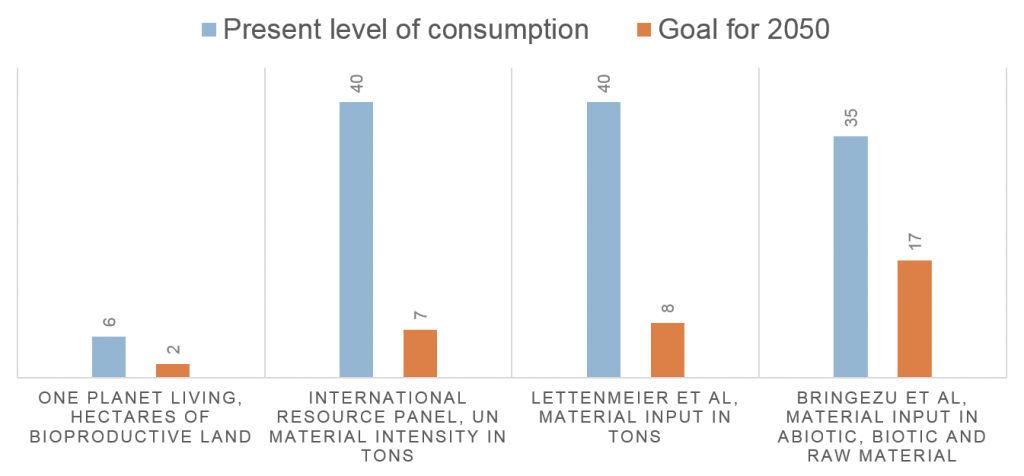Overconsumption is one of the main obstacles on our way to sustainable future. Thanks to recent scientific research, there is some understanding of the extent of our challenge: According to some estimates the range of reduction of natural resource consumption varies from 60 – 80 % compared to the current levels. Such reduction would require a considerable change in our consumption patterns and habits. A transition from culture of abundance to culture of scarcity seems necessary, but how to push such transformation forward?

Possible means to reduce consumption
Below, a number of radical means are presented that could be used to promote sustainable consumption in Finland. These means focus on policies and economic instruments that would change our consumption behavior. They are fresh in the sense that they have not been used, or largely discussed, in the public policy arena in Finland. They are transitional in a sense that they should induce systemic changes that provide new courses of action and support the renewal of the current consumer-based culture. They are radical in a sense that they aim at considerable reductions (60 – 80 %) in consumer demand for natural resource use and they are strong in a sense that they are not based on voluntary activity.
Individual consumption quotas
These could be used in for example, meat, water and energy consumption. Exceeding one’s quota could, for example, lead to notably higher prices or require the exchange of consumption quotas with other consumers.
Bonus schemes for reduced consumption
Bonuses could be given, for example, for not owning a car, low water consumption or vegetarian diet. Bonuses could be used for purchasing products or services with low impacts or they could be sold to others. Each citizen should collect or buy a certain amount of bonuses a year.
Promoting sharing through regulatory means
For example, increasing shared living spaces through planning and housing regulation or extending library networks and including tools and other objects to loan.
Progressive consumption taxes
Consumption taxes could be targeted at non-sustainable products and they should be notably higher than at present, for example up to 75 %.
Curbing of advertisements
Advertising products with high environmental impact would not be permitted, for example cars.
Using other national indicators instead of GDP
For example Genuine Progress Indicator or Genuine savings. Which indicators would you suggest, and would it have an impact to consumption and demand for natural resources?
Sustainability service – a compulsory period for all youth to participate
During the service young people would participate in projects that promote sustainable consumption in businesses, public sector, ngos or communities.
Limiting the sale of goods for individual use
For example, cars could only be shared or a lawn mower could be bought only together with a group of people.
Reducing work hours
Weekly working hours would be limited to 25 hours. Decrease in income and increase in free time would decrease consumption.
The means listed above have been collected from literature and through expert interviews in Finland. The list is by no means comprehensive nor complete. Therefore all comments as well as suggestions for new means would be more than welcome. You can either write them in the comment section below, or answer this survey:
Which means would you use to reduce the consumption of Finnish households? Answer the survey here (THE SURVEY IS CLOSED).
References:
BRINGEZU, S., 2015. Possible Target Corridor for Sustainable Use of Global Material Resources. Resources, 4(1), pp. 25-54.
LETTENMEIER, M., LIEDTKE, C. and ROHN, H., 2014. Eight Tons of Material Footprint, Suggestion for a Resource Cap for Household Consumption in Finland. Resources, 3(3), pp. 488-515.
UNEP, 2014. Managing and Conserving the Natural Resource Base for Sustained Economic and Social Development. A reflection from the International Resource Panel on the establishment of Sustainable Development Goals aimed at decoupling economic growth from escalating resource use and environmental degradation. UNEP.
WWF One planet living
http://wwf.panda.org/what_we_do/how_we_work/conservation/one_planet_living/about_opl/footprint/